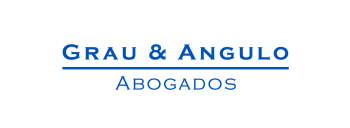In a January 14 2015 judgment the Alicante Community Trademark Court No 2 found liable for trademark infringement and unfair competition several companies of the Saphir Group and a supermarket chain in regard to a suit filed by Spanish perfume and fashion group PUIG, Carolina Herrera Limited, Puig France SAS, Gaulme, SAS and Antonio Puig, SA (for further details please see "Court finds unlawful trademark use in smell-alike perfume case").
The suit was filed based on the defendants' use of the plaintiffs' trademarks – including CAROLINA HERRERA, NINA RICCI, PACO RABANNE and JEAN PAUL GAULTIER – to promote, offer and sell their smell-alike perfumes (for further details please see "Court rules on use of comparison lists for smell-alike perfumes").
The court presented as proven facts that the Saphir Group companies used the plaintiffs' signs in comparison lists linking their smell-alike perfumes with the plaintiffs' trademarks. Meanwhile, retailers such as the supermarket chain acting as co-defendant sold the Saphir Group's perfumes on their premises by using labels on the displays or shelves which reproduced the plaintiffs' trademarks.
The court declared that this use infringed the plaintiffs' trademark rights as it took unfair advantage of the distinctive character and repute of their trademarks. The court also found that the defendants had committed acts of unfair competition by taking unfair advantage of another party's reputation and had carried out unlawful comparative advertising.
The defendants appealed.
In a September 14 2015 judgment Section 8 of the Alicante Court of Appeal, acting in its capacity as the Community Trademark Court of Appeal, confirmed the first-instance decision.
While this is not the first Spanish lawsuit on the recurring practice of using a third party's perfume trademark to market its allegedly smell-alike perfume, it is the first time since the landmark European Court of Justice L'Oreal v Bellure judgment (C-487/07, June 18 2009) that a Spanish appeal court has ruled extensively on the issue, declaring such acts to be unlawful due to trademark infringement and unfair competition.
The court held that the defendants' use of the claimants' trademarks constituted use that the owners of the marks were entitled to prevent, as it impaired the function of communicating the reputation, prestige and goodwill inherent to the plaintiffs' trademarks, which the Saphir Group sought to appropriate.
It also stated that the use was not covered by the limitation applicable where a third party's trademark is used to describe a product's characteristics (in this case, the smell).
The court held that the reference to the plaintiffs' trademarks:
- was not the only way of providing information to consumers on the types of fragrance offered, since there were other ways to do so (eg, testers and samples or a description of the fragrance without referring to another brand, as on Saphir's own website);
- led to an unfair advantage gained from the prestige and reputation of the trademarks; and
- implied the presentation of the smell-alike perfumes as imitations or replicas of the original perfumes bearing the plaintiffs' trademarks.
The decision was founded on the idea that use of the original perfumes' trademarks was not intended to describe the defendants' fragances, but rather was used to attract consumers to the smell-alike perfumes in order to boost sales.
Overall, the court considered that the plaintiffs' trademarks were infringed because, even without a likelihood of confusion, there was a link between the marks and the signs used by the defendants, which took unfair advantage of the distinctive character or reputation of these trademarks.
Further, the court confirmed the existence of acts of unfair competition. According to the court, there was no doubt that the defendants had presented their products as imitations or replicas of the plaintiffs' perfumes in contravention of the rules on lawful and fair comparative advertising. It also confirmed that unfair advantage was being taken of the reputation of the plaintiffs' trademarks. In the court's opinion, the whole business was based on the fact that products were offered as imitations or replicas and well-known trademarks were used to attract consumers and encourage purchases.
For further information on this topic please contact Carlota Viola at Grau & Angulo by telephone (+34 93 202 34 56) or email ([email protected]). The Grau & Angulo website can be accessed at www.gba-ip.com.
This article was first published by the International Law Office, a premium online legal update service for major companies and law firms worldwide. Register for a free subscription.



